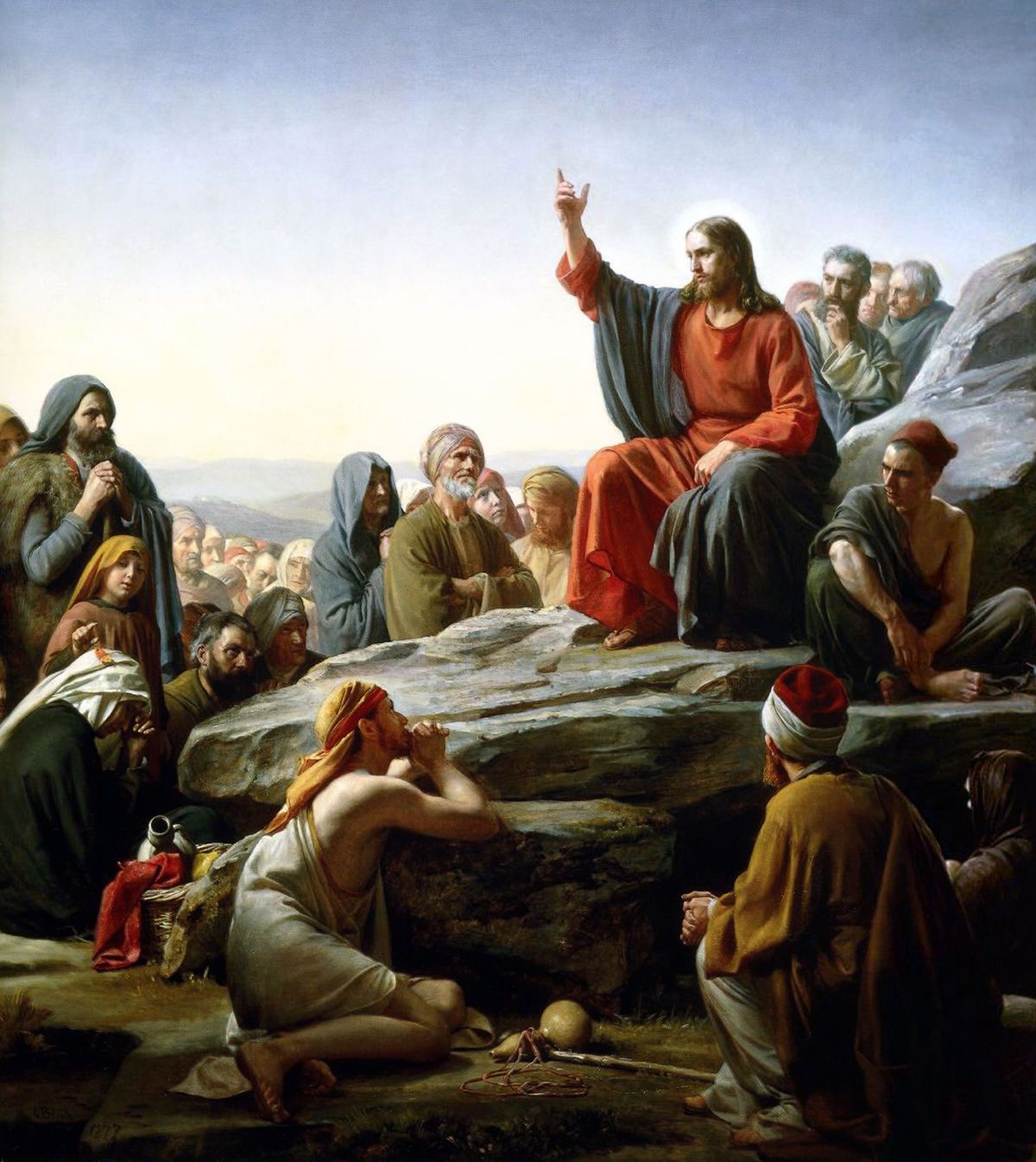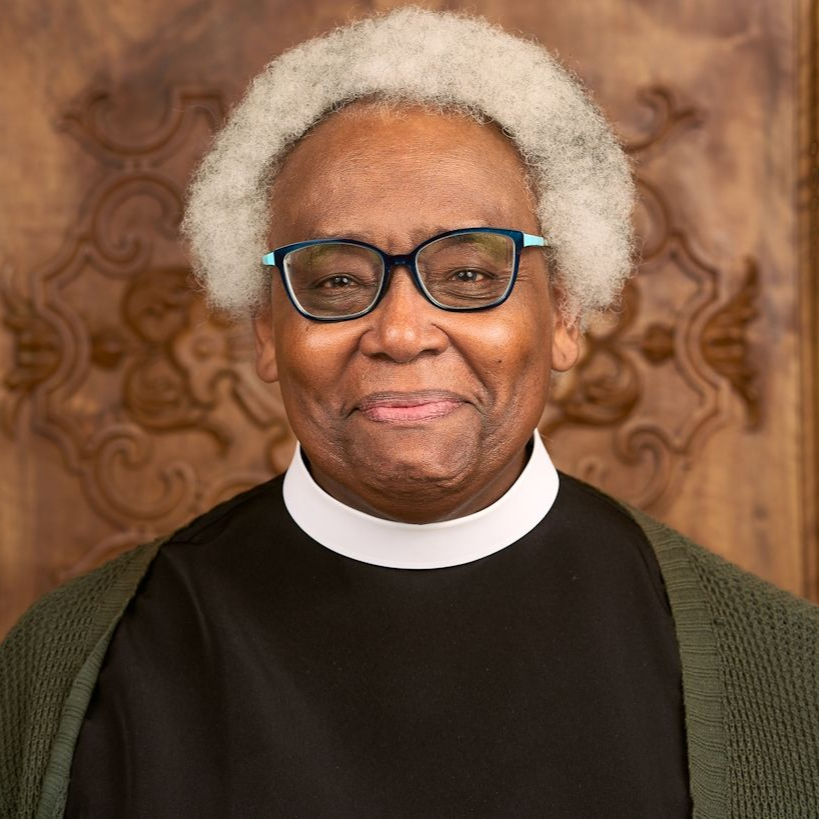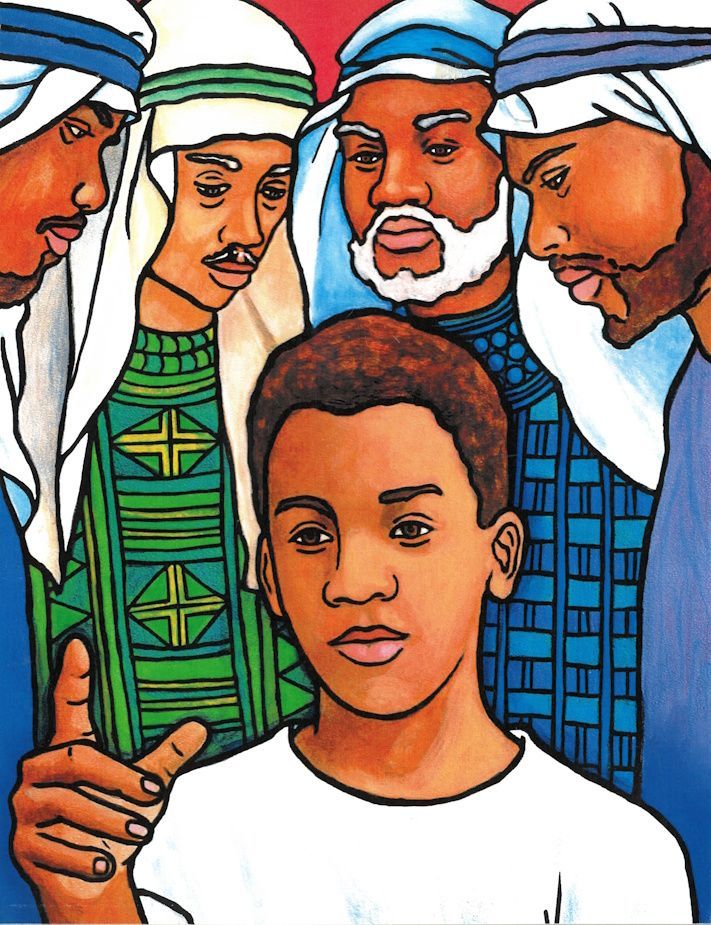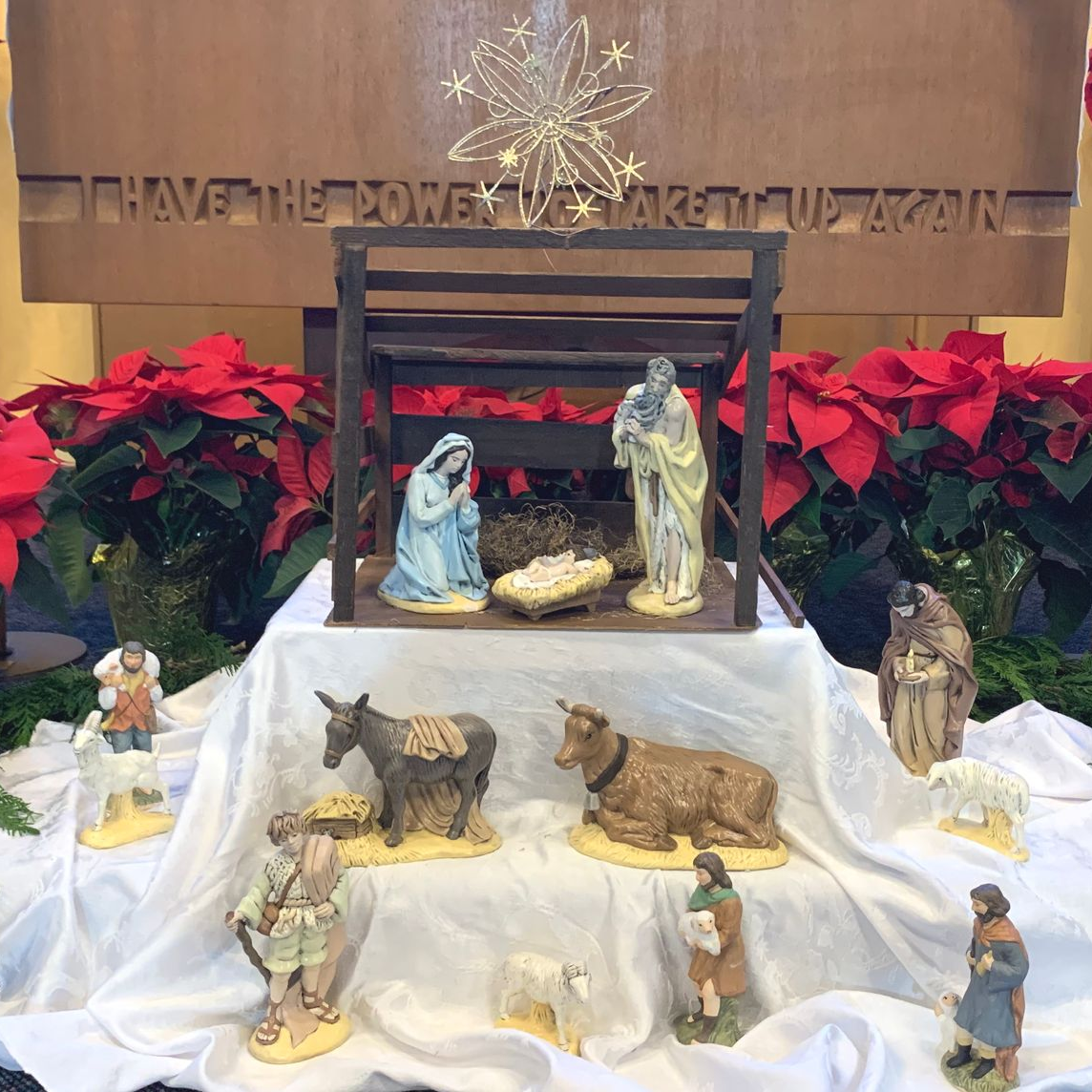We Set Sail
"I wish there were a club of people who dedicate their lives to loving everyone, even those who don’t really deserve it."
2025-30
sermon preached at Church of the Good Shepherd, Federal Way, WA
www.goodshepherdfw.org
by the Rev. Josh Hosler, Rector
The Sixth Sunday of Easter, May 25, 2025
Acts 16:9-15 ;
Psalm 67 ;
Revelation 21:10, 22-22:5 ;
John 14:23-29
Pop quiz: the Acts of the Apostles is part two of which of the four gospels? Every Christian should learn and remember this.
That’s right: Luke! Whoever Luke was.
The Acts of the Apostles also contains lots of sailing stories. As we get toward the end of the book it feels more like a classic children’s adventure novel set on the Mediterranean Sea. There’s a stormy shipwreck and a snakebite by the campfire and imprisonment in the jail of a seaside town. About the only thing the story doesn’t have is a sea monster threatening to crush the ship in its coils … or a boy changing into a dragon.
But all we get today is a little snippet. Paul has a vision sent by God to arrange things to happen in a certain way. In the vision, a man from Macedonia says, “Come help us!” Pretty straightforward, right? So Paul goes to Macedonia with his crew, and this is the first time in the whole Bible where the narration switches to first-person plural: “We immediately tried to cross over … We set sail from Troas …” From here to the end of the book, it’ll periodically flip back and forth between first- and third-person.
Why is this the case? It may be because the author was indicating the times when he was actually present. It may be because the author was working from original travel diaries and didn’t want to change anything unnecessarily. Or there may be some stylistic reason we just don’t understand today. But I really like the “we” sections; I find them very humanizing. I also think they’re an invitation to include ourselves in the action.
This means that “we” get to Macedonia with Paul and Luke and the crew, first to the island of Samothrace, then to the mainland at Neapolis, which was near modern-day Kavala, and finally to the town of Philippi, about four hours’ walk inland. There we meet Lydia, a dealer in luxurious purple cloth. Lydia is a Gentile who likes to hang out with Jews.
We see here that Lydia is the prime audience for these foreign evangelists: she knows about the God of Israel but is not connected by heredity. It’s a recurring theme in Acts that while Paul always approaches his fellow Jews first with his proclamation that the Messiah has indeed come, he often finds that Gentiles are more receptive to this message. We see here the beginning of what will eventually become a permanent split into two religions: one that continues primarily through family ties, and the other that actively tries to convert people from everywhere in the world.
Well, we all know how effective and how disastrous the project of Christian evangelism became in the long run. By all accounts, Christianity was spread by conquering armies just as much as by peaceful pilgrims. We are still haunted by that legacy today, and while I can’t speak for all Episcopalians, I find that a lot of us are deathly allergic to the notion of “evangelism.”
I also notice that our church has been shrinking for decades, and that most people under 30 today have never even heard of us. In my four years of university campus ministry, this is the most common question I was asked: “What does ‘Eppiscopple’ mean?”
Well, if evangelism evokes for you medieval images of the Crusades and modern images of people with sandwich boards yelling at you about how evil you are, I can’t blame you a bit. These associations are real. But today I’d like to offer another vision of evangelism that may be something more like the exchange between Paul and Lydia. Just imagine it happening with you in Paul’s place, speaking to a 20-something named Lydia who has never been to a church service in her life. Lydia says:
“You know what I wish? I wish there were a club of people who dedicate their lives to loving everyone, even those who don’t really deserve it. They would create an alternative community irrespective of nation or race, and this community would include any and all who wanted to be part of it. They would understand themselves to be acting on God’s wishes—to make the world more like the way an eternally loving God would want it to look—never by violence, never by governmental control, always by love—even if that takes all our lives and beyond—starting from wherever we are right now.”
Your response: “Well, guess what. We’re that club! We’re not perfect people by any means, but the project you name is indeed our project. And the way you join this club is to be baptized.”
“OK then,” says your friend. “Baptize me! I want to join this movement with you.”
I know, it never really goes quite like that. It’s the eager, joyful spirit of the exchange that I’m trying to offer you. Do you see how this might look different from every other understanding of evangelism you’ve ever had?
It is every Christian’s duty to practice speaking of our faith in terms that others can hear and receive our stories. Our job is not to collect everybody in the world, but simply to make everyone in the world aware of the Good News we have received, that they may or may not choose to trust in and to participate in sharing.
Our job is not to conquer the world through controlling seven mountains of influence or any of that nonsense. That kind of crap turns Christians into tyrants. When we find that we are very much in control, it’s our job to relinquish that control. Because we will misuse it. We always have.
We hear Jesus say today, “Those who love me will keep my word,” and that word is to love one another. Do you see? Loving Jesus is more abstract than being a Christian; anyone can get baptized and then get back to being hateful. No, our definitions need to be looser and broader. We are never to shame those who choose to walk apart from us, but just keep loving them in whatever ways they wish to be loved. We have no need for anxiety about the eternal fate of anyone. Take the most generous approach to Jesus that you can, because Jesus is endlessly generous with us!
This is why I aspire to let go of my fear that the church will not be able to function anymore the way it did in the 1960s. Of course we won’t: the world has changed around us. We are followers of Jesus, so obviously our understanding of “success” must look different from what the rest of the world expects. We are followers of Jesus, so even death must not look to us like a threat, but like an opportunity for God’s deepest joys to sprout and grow in fertile soil.
This is also why I’d always rather belong to a congregation that thoughtfully exerts political pressure without holding any sort of political dominion. It’s our job to state clearly our understanding of God’s priorities, seen through a lens of non-possessive, self-giving love. Then we are to get ourselves out of the way and let the Holy Spirit do her work.
Well, here “we” are, in the same story as Paul and Lydia, only 2000 years down the road. “We” are also a “we” here at Good Shepherd today. What are “we” doing together?
Last Tuesday night the vestry and I finally reunited for our first meeting together since I returned from my sabbatical. In February the vestry identified mutual ministry goals for 2025, but they needed to wait for my return to formalize them, because they are intended to be mutual work.
Last year’s goals were as follows: to develop and make a plan for maintaining those wonderful colored ministry cards you see on the bulletin board downstairs. To repaint and refresh the furnishing in Seaman Hall to make it a more welcoming space. And to encourage one another to wear our nametags on Sunday mornings, so new people can more easily get to know us.
We did these things, and I’m glad we did. But notice that all of these goals were internal: nobody outside our building can benefit from them. This year, then, we made an intentional shift. Our congregation represents one hundredth of one percent of the population of Federal Way. We are a well-kept secret, and we want this to change. We need to meet our neighbors if we ever want to raise awareness of our existence! Not that we expect everyone to join us, but you can bet that many more people would if they only knew about us.
Here, then, are the mutual ministry goals for the vestry and the rector for 2025, and please note that some of them can only get started this year:
1. To form a Social Justice Team to be in relationship with persons currently being persecuted or marginalized. This will be done in cooperation with the Faith Formation and Outreach Teams. When the group participates in direct action, it will be only nonviolent in manner.
2. To develop a new mission statement that better represents and speaks to who we are as a faith community in understandable language. This will first involve your input.
3. To form a project team to pick up the work of the Buildings & Grounds Task Force and begin the building project as soon as possible. Elevator! Restrooms!
4. To empower the Finance Committee to gather congregational input on your wishes for the use of the three and a half acres of woods on our property; to gather the perspectives of our Federal Way neighbors; and to outline a long-range plan for the congregation’s land.
Last week we finalized and approved these goals, and now we will send them to Bishop Phil’s office for his signature. I like these goals a lot. They begin to make us less insular. And because the vestry and the rector can’t possibly accomplish all of this alone, I’d like to encourage all of you to think about how you can be part of the “we.” Which of these goals speaks most clearly to your heart and calls out your gifts and talents?
Every week when we go out from this place, we set sail again on the seafaring adventure of life in a dangerous but thrilling world. We seek out Jesus to keep teaching us how to love. He promises to send the Holy Spirit to bring us clarity and peace. This is not the kind of so-called “peace” that rams through legislation in the middle of the night for fear of people actually reading it, or that is enforced by masked agents whisking away perceived troublemakers. The peace Jesus offers leaves nobody out and is never coercive. It’s always an invitation—to greater humility, greater understanding, and greater potential for joy. Amen.










